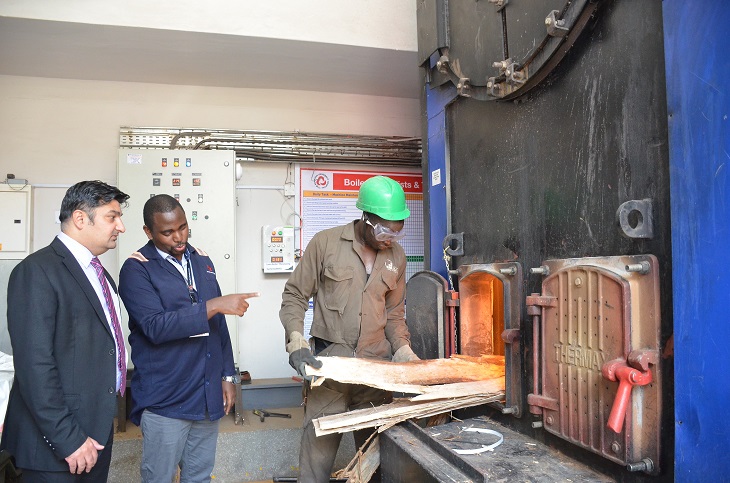The Aga Khan University Hospital has commissioned a biomass boiler to power its heating system, abandoning diesel as the source of energy for the boiler.
The biomass facility will reduce the hospital’s annual consumption of diesel by 860,000 liters. The utilization of briquettes and other waste sources will result in substantial carbon emission reductions, with an estimated saving of more than 202,000onnes of carbon dioxide equivalent per year. These emissions, every month, are equivalent to driving back and forth between Nairobi and Mombasa over 700 times in an average-sized car.
The new boiler will generate steam for the hospital’s water heating, laundry, cooking, and sterilization services.
The Health care sector is carbon-intensive due to energy-intensive operations and extensive supply chains. Globally the sector is responsible for 5.2% of global emissions (Lancet, 2023). In other words, if the sector was a country, it would be the 6th largest emitter in the world.
Speaking during the commissioning of the project, CEO Rashid Khalani said that given the devastating effects of climate change, “it is imperative that organizations consider the environmental impact of their operations and address the sources of emissions.”
“Primarily hospitals exist to nurture human health. However, we also know that climate change increases the risk of illness. Healthcare institutions have a responsibility to nurture the well-being of the environment,” said Mr Khalani.
As part of the Aga Khan Development Network’s unwavering commitment to combat the negative impacts of climate change, organizations within the network have committed to achieving net zero emissions by 2030.
“Aga Khan University (AKU) and its hospitals have lined up several initiatives to meet this goal and this project is among them. As we continue to strive towards excellence in education, research, and healthcare, we will also lead by example in reducing our environmental impact,” said AKU Vice Chancellor, Dr Sulaiman Shahabuddin.
Last year, the Hospital installed a 100KWp solar-powered plant that offsets grid power at the Doctor’s Plaza building. This has reduced an average of 96,000 kgs of carbon emissions yearly.
“All our new energy projects will be 100% renewable. All our new buildings are also constructed in line with green building guidelines that aim to reduce emissions and make savings in energy and water usage,” said Dr. Shahabuddin, adding that the institution was in the advanced stages of rolling out similar environmentally conscious projects.

